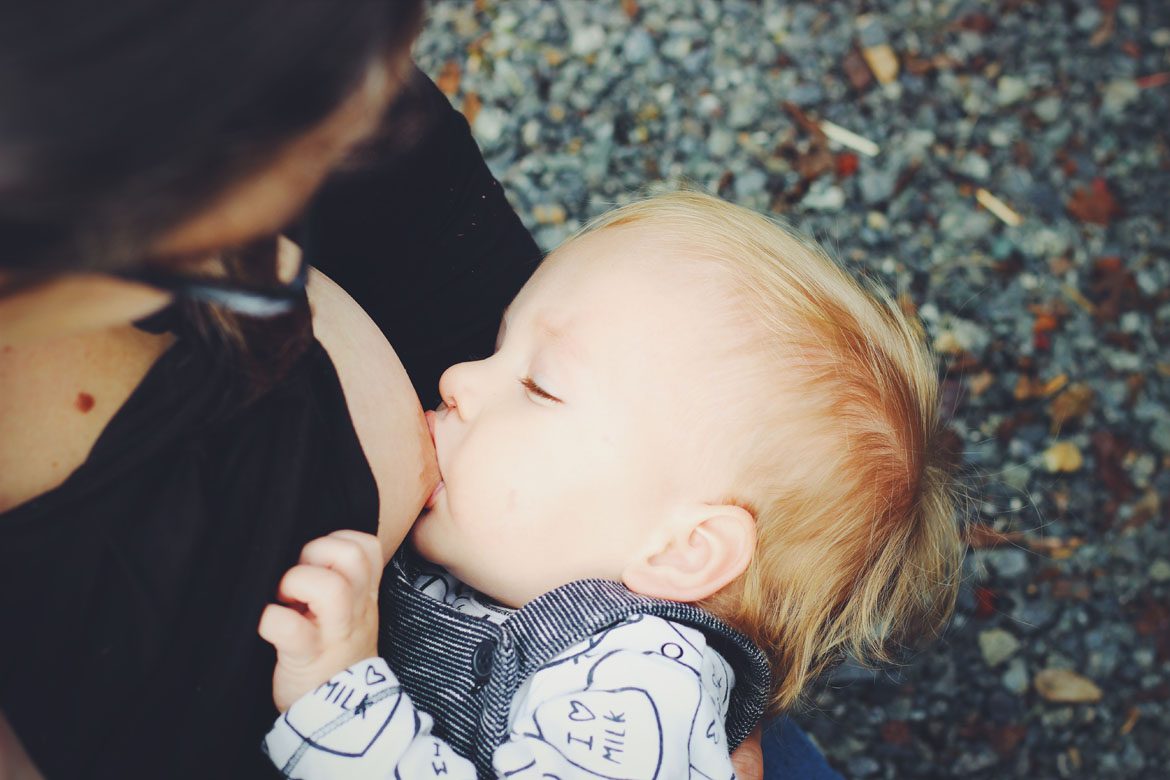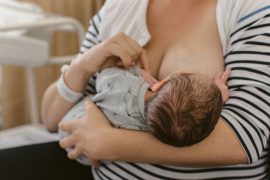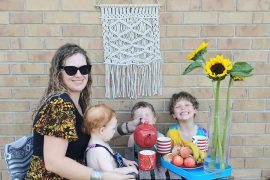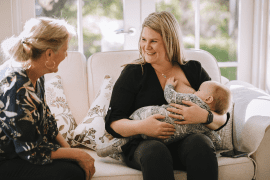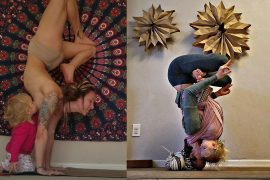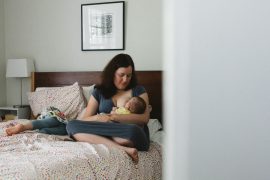By Haylee Hackenberg
I love breastfeeding my babies. I love everything about it. I love the convenience, the forced slow down time, I even love the night time nursing sessions (not necessarily the sleep deprivation that goes along with it though!). Those big eyes fluttering shut, and the tiny warm body snuggled into me, tracing my face with those beautiful searching hands.
I really feel for women who are unlucky enough not to breastfeed when they have wanted to. I honestly can’t imagine mothering without breastfeeding. My son is 17 months and still feeding, and my daughter is 3 and still asks for the odd feed. I’ve fed through two traumatic births ending in emergency caesarean section, pregnancy, food intolerance related reflux, cracked ribs, return to full-time work. It was all against me. When I tell people this story, I often receive the reply that I’m lucky to breastfeed. Despite all this, I do not consider myself lucky to breastfeed.
I am lucky to have had the right support. As mothers, we tend to assume the guilt of all things, as well as the achievement of all things. So often when other mums see me breastfeeding, especially as my children grow, they volunteer their own breastfeeding story. The stories are usually similar. Self-deprecating. These women blame their own bodies. These women tell me they failed. This is just not the case.
As mothers, we rely on the people around us to help us, especially in those raw early days of motherhood, and this is where it all so often falls apart.
The fact is, breastfeeding is the biological norm. Not best. Just normal. The Australian Breastfeeding Association advises that in fact, most mothers can make more than enough milk for their baby. If this is not the case, it is usually other factors causing issues. As mothers, we rely on the people around us to help us, especially in those raw early days of motherhood, and this is where it all so often falls apart.
My own breastfeeding journey would have fallen apart on my first day home from hospital had I have listened to the midwife who advised me my baby would need a feed every three hours, and only every three hours. Unlike formula, breastmilk is metabolised incredibly quickly and efficiently by our baby’s stomachs, and by day three a baby’s stomach is only the size of a walnut! That means a tiny baby will feed feed feed.
The best way to test if your baby is getting enough milk is via nappy output. The Australian Breastfeeding Association states “at least 6 to 8 very wet cloth nappies or at least 5 very wet disposable nappies in 24 hours. The urine should be odourless and clear/very pale in colour. Strong, dark urine suggest that the baby needs more breastmilk and you should seek medical advice.”
Had I have taken the midwife’s advice, my baby would have gone hungry, and my milk supply would have suffered. The fact that I overcame this and went on to breastfeed successfully, is no more my own achievement, than it is the failure of a mother who was unable to do so. The difference is so simple, but so important. I had support.

